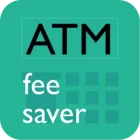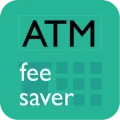Not sure if I should carry coins for public transport in Bosnia and Herzegovina or if card payments are common. Advice?
Just got back from Sarajevo last month. The tram system is super affordable (like 1.60 BAM per ride), but payment is strictly cash unless you’ve got a local RFID pass. No Apple Pay, no tapping cards. I kept a stash of 1 and 2 BAM coins just for transport. Some taxi apps and intercity bus operators like Centrotrans accept cards, but for inner-city public travel? Definitely go old-school and carry coins. The drivers don’t usually carry change either.
When I visited Mostar in April, I was surprised how little card usage there was on public transport. Some buses did have signs mentioning smartcards or mobile apps, but they were only for locals with monthly passes. For tourists, coins are king. Even the ticket machines at some stations didn’t take foreign cards like Visa or Mastercard. If you’re planning to use transport often, I’d recommend withdrawing a mix of coins and small notes at an ATM like NLB or UniCredit.
I got caught out in Banja Luka assuming I could tap with my Monzo cardbig mistake. The bus conductor straight-up refused card and asked for exact change in BAM. Even though it’s 2025, public transport in smaller Bosnian towns is still old-school. If you’re based in Sarajevo, there are some newer buses trialing contactless payments (I think through Raiffeisen Bank support), but it’s patchy. Always safer to carry coins for short trips.
I was in Sarajevo in March and can confirm that most of the trams and trolleybuses still operate on a cash-based system. You can buy tickets at kiosks (like TISAK or Moj Kiosk) using cashusually coins or small notes. I didn’t see any contactless card readers on the older trams, and even locals were mostly using change. Definitely keep some konvertibilna marka coins (BAM) handy, especially if you’re heading to cities like Tuzla or Mostar where contactless is rare.


